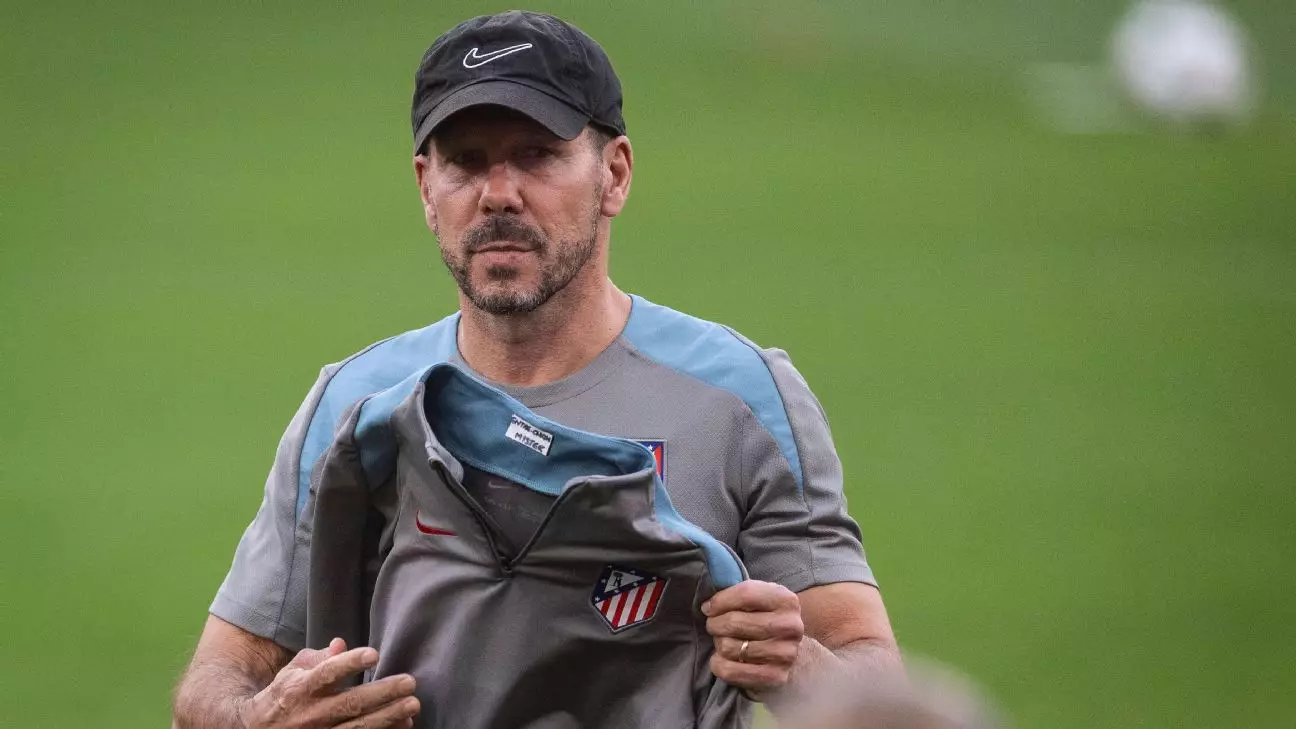In the world of football, emotions run high, not just on the pitch but also in the stands that house fervent supporters. Recent events during the Madrid derby illuminate these passions, revealing deeper issues about player conduct and fan provocations. Atlético Madrid’s manager, Diego Simeone, stands at the center of this discourse after condemning fans’ behavior while suggesting that certain player actions contribute to escalating tensions. This article delves into the implications of his statements and the broader impact on football culture.
During a tightly contested match at the Wanda Metropolitano Stadium, an explosive situation unfolded when Atlético Madrid faced off against arch-rivals Real Madrid. Following Éder Militão’s goal, celebrating Real Madrid players were met with hostility from Atlético ultras, resulting in objects being hurled at goalkeeper Thibaut Courtois. The match was briefly suspended as officials dealt with the fallout of the incident, which has since sparked much debate around player celebration etiquette and fan interactions.
Simeone’s assertion that provocation should come with consequences sparked immediate public discourse. According to him, players must understand the impact of their gestures and celebrations on fans, implying that irresponsible actions can lead to hostile reactions from the crowd. The direct connection he draws between player behavior and fan retaliation complicates the narrative by suggesting that responsibility lies not only with the fans but also the athletes whose actions can ignite such fury.
What makes Simeone’s remarks particularly contentious is the inherent expectation placed on athletes to monitor their emotional expressions under pressure. This expectation raises an essential question: should players moderate their celebrations to prevent fanbacklash? While the argument promotes a considerate approach to player interactions with the crowd, it can also be perceived as an undue burden, shifting the accountability away from the instigators of violence—the fans.
Simeone has previously advocated for a culture of respect and sportsmanship, claiming that players must exemplify these values both on and off the field. However, by suggesting players can provoke negative reactions, his stance risks diluting the legitimate frustration many players feel when confronted with fan misconduct. Thus, the crux of this discussion revolves around shared accountability and the dynamics of celebratory moments in high-stakes games.
The incident’s repercussions were immediate, with Atlético Madrid swiftly penalizing an identified individual involved in the throwing of objects. This proactive response is necessary to reinforce the club’s intolerance toward violent acts within the stadium. However, it also highlights the broader societal issue: fan violence remains a persistent problem in football culture worldwide.
Simeone emphasized the need for a firm response and societal awareness. His belief in the necessity of an ongoing debate about the behaviors exhibited both by players and fans is crucial for fostering a safer environment in stadiums. By encouraging clubs to adopt robust measures and promoting a narrative that holds everyone accountable, including the fans themselves, the footballing community sets a precedent against future occurrences of similar violence.
While Diego Simeone’s comments may have ignited critique and division among fans and analysts, they serve as a prompt for necessary dialogue about the culture within football. The intersection of player actions, fan reactions, and the ensuing consequences demand introspection from both groups. Moving forward, it is essential for clubs, players, and supporters to cultivate an atmosphere where the passion for the game does not manifest in violence or hostility.
As we reflect on these incidents, the aim should not be to point fingers but rather to foster a collaborative approach to sportsmanship. By promoting values of respect, accountability, and understanding, the football community can address these complex issues more effectively while preserving the excitement and fervor that makes the sport truly special.

